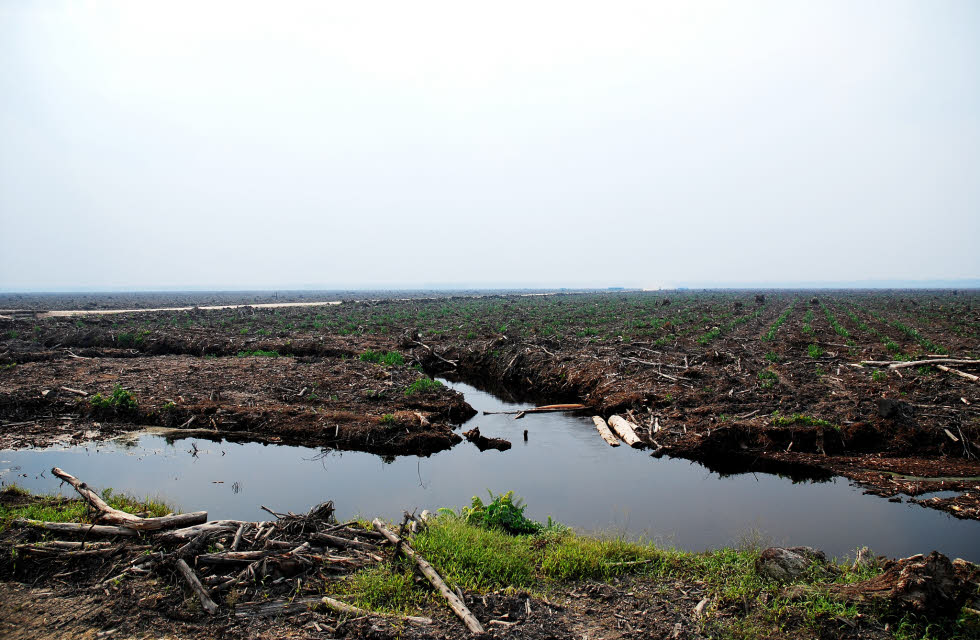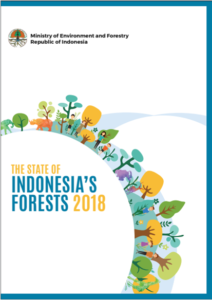Indonesia recently published a report on ‘The State of Indonesia’s Forests 2018‘ with Minister of Environment and Forestry, Ibu Siti Nurbaya, in lead, reports the Embassy of Denmark in Indonesia.

“Deforestation remains a major concern, and public initiatives such as community managed forests are being prioritised to promote sustainable forest management. Denmark is working closely with the Indonesian government to promote sustainable conservation measures. One of our joint initiatives, Hutan Harapan ‘Rainforest of Hope’, has been supported since 2011 to restore and protect one of the richest and most threatened lowland forest ecosystems through active community engagement.
Indonesia’s Ministry of Environment and Forestry (MOEF) produced the first ever ‘State of the Indonesia’s Forests’ (national SOFO) publication in collaboration with FAO of the United Nations. Today (15/1) Ministry of Environment of Indonesia with FAO high officials gathered to attend the advanced writing workshop to finalize the content of the national SOFO publication.
The publication highlights the successful efforts of the Government of Indonesia through various policy instruments and forestry practices to promote good governance of sustainable forest management in Indonesia.
“State of Indonesia Forest (National SOFO) is the future of our forest. This publication perhaps will stay until 30 years later. This report is a huge step for Indonesian forestry, and we are able to achieve it with the FAO support. Perhaps this can be compared with FAO support to Indonesia’s agricultural development in the 70’s,” said Minister of Environment and Forestry Siti Nurbaya, who is also the Editor in Chief in the publication at the opening of a workshop held earlier in 2018 as part of the production of the report.
 SOFO aims to provide information to the global community, the state of Indonesia’s forests and forestry resources, and the efforts of the Indonesian Government to democratize the allocation of forestry resources.
SOFO aims to provide information to the global community, the state of Indonesia’s forests and forestry resources, and the efforts of the Indonesian Government to democratize the allocation of forestry resources.
“The world is seeking for a leader in the forestry, in the wildlife. The international society is expecting our leadership” said Siti.
“It has been an honour for FAO to support the Indonesia SOFO process since October 2017. FAO sees the Indonesia SOFO as being not only an important publication for this country but also for the rest of the world,” stated FAO Representative in Indonesia Stephen Rudgard.
From the executive summary of SOFO:
“The State of Indonesia’s Forests 2018 provides a broad and deep examination of the progress of the implementation of Indonesian government policies under the leadership of President Joko Widodo and Vice President Jusuf Kalla to manage Indonesia’s forests, and participate in managing the global climate with sense of responsibility. For the Government, the State of Indonesia’s Forests 2018 can be considered as a political document, reflecting participatory processes in achieving multi-stakeholder consensus in the management of Indonesian forests. The State of Indonesia’s Forests 2018 was written by many authors from the Ministry of Environment and Forestry and presents the latest data and information on the management of Indonesia’s tropical forests, while illustrating achievements that have been made to date.
“The State of Indonesia’s Forests 2018 explains the status of Forest Area and forest cover, demonstrating the government’s high attention to safeguarding Indonesia’s tropical forests that function as a global heritage and a living natural laboratory, ensuring long-term prosperity for society and the survival of human life. The State of Indonesia’s Forests 2018 is an effort to be transparent about national programs and achievements, so that they may be known by all parties, including the world community. Multi-stakeholder engagement, especially with grassroots communities, is a policy priority. So is practicing good governance in forest management for the current and future generations.
“For Indonesia, the responsibility for managing forests is not merely the responsibility of the government, but it is the responsibility everyone, ranging from the private sector to members of grassroots communities. Forest management is not just about the timber economy, or conservation of biodiversity, flora and fauna, but about the overall management of forests. The forest with its various functions must be beneficial for millions of Indonesians. This is why there has been a shift from forest management focused mainly on timber management, toward broader forest landscape ecosystem management, which includes social forestry and community-based forest management. The combination of forest management with better land use represents a strategic reorientation toward managing forests more wisely, while taking into account customary values, social forestry, elements of agrarian reform, and law enforcement Indonesia is one of the world’s most biologically diverse countries, contains the largest expanse of tropical peat lands in the world, and therefore has an important role for the world in maintaining the stability of global ecosystems. Indonesia stands ready to lead globally in the areas of forest conservation, biodiversity protection and wise peat ecosystems.
“The Government of Indonesia is now carrying out policy reviews and correcting measures to promote better management of forests and peat ecosystems. In particular, improved peat management in small and large plantations is underway to ensure a sharp drop in the occurrence of peat soil fires in forests, plantations and home gardens – and related negative effects on the environment, health, transportation and economic growth.
“The State of Indonesia’s Forests 2018 is a very important document. It is not only a medium of information about Indonesia’s forests, but also an open, public, official document that provides information and outlines certain accomplishments for an international community that appears eager to better understand forest management in Indonesia. While the State of Indonesia’s Forests 2018 highlights various corrective measures, it also provides space for accommodating relevant inputs and feedback, so that the international community can support the country and the people of Indonesia, to improve their wellbeing.”
Sources: Embassy of Denmark in Indonesia, Indonesia’s Ministry of Environment and Forestry (MOEF), Food and Agricultural organization of the United Nations
